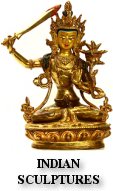Why no Hindu or Buddhist representation?
By Aseem Shukla

Human Rights should be applied to all Religions including Hinduism, Sikhism, Buddhism and Jainism which are usually ignored
Q:The Chicago Council on Global Affairs is recommending that the U.S. government develop a strategy to make religion ‘integral’ to American foreign policy. Should U.S. foreign policy get religion?
There is little doubt that U.S. foreign policy apparatchiks have historically been deaf to religion as a driver of nationalism, foreign policy and eventual chaotic governmental transitions overseas. Failing to predict the inevitability of the Shah’s overthrow in Iran or unbridled support to the so-called mujahideen in Pakistan creating our friends, the Talibs (with apologies to the late Charlie Wilson), are legend in the annals of American overreach, miscalculation and religious obtuseness. That our foreign policy assets require an education in global religious literacy is clear and its apparent absence appalling.

This week, the Chicago Council on Global Affairs released a report put forth by a task force it convened to chart a course for engaging religion as a part of foreign policy. But the recommendations released by the task force are fundamentally erroneous at several levels: from the makeup of the task force that authored the report, its basic assumptions, and its potentially dangerous recommendations. Indeed, the entire effort, ostensibly galvanized by President Obama’s similarly flawed address to the “Muslim World,” promotes an Abrahamic framework that fails factually, theoretically and in its myopic parochialism.
Some of the final recommendations are obvious: government officials should be trained in the “role of religion in world affairs”. Others are stunningly misguided: that the role of the Establishment Clause mandating a separation of church and state needs to be “clarified” to encourage relationships between our government with religious groups overseas that would not pass muster domestically. And absent entirely is a thorough explanation as to how that dangerous admixture of religion and politics could safely transpire.
No observer will argue that our government officials and our citizens, for that matter, must increase their understanding of global religions. But whose version of religion? Hindus, for example, would be mortified if the eroticized, sexualized spoof of Hindu theology long promoted by this nation’s “preeminent” scholar of Hinduism at the University of Chicago Divinity School, Prof. Wendy Doniger, was offered as the expert voice to school foreign policy students. They would much rather that voice be balanced between practicing Hindus and academics who seek to understand and recognize the Hindu tradition from the perspective of the practitioner.
Will the U.S. government promote the radically right-wing version of Christianity aiming to grace Texas schoolbooks, or the Intelligent Design dominated iteration championed by Bobby Jindal, Sarah Palin and their ilk? These are difficult questions that will set the tone to our policy wonks’ dance with religion.
Try now to digest the concept of our government modulating the hallowed Establishment Clause of the U.S. Constitution already under duress from the aforementioned Texas State Board of Education cabal. It is completely naive to conceive of U.S. foreign policy and U.S. domestic policy as two separate entities with little overlap. Take this excerpt from Page 64 of the full report in arguing for limitations on the separation of church and state in foreign affairs:
“For example, at one end of the spectrum is the erroneous view that the Establishment Clause precludes foreign policy initiatives that advance the freedom of religious practice and belief in other countries.”
Read between the lines and the homily to the freedom of religious practice seems far more insidious. One benign reading would be that the State Department would promote freedom of religion in Saudi Arabia or Tibet or Malaysia. But an entirely different fear could be that a Bush Administration redux–freed from the limits of the Establishment Clause–could use foreign policy as a tool to promote Christian evangelism and proselytization. Several global evangelical groups and megachurches already subsidize education and health care, for example, to new converts in Asia and Africa. Such partisan excesses have been covered in detail in the Indian press and here.
And another question: Given the intersection between global and domestic policy, would selective interaction of our government with particular religious groups overseas not require closer relations between representatives of those religious groups that are U.S. based? The danger that one religious tradition would be privileged over others is very real, and there are very valid reasons that the Establishment Clause serves as a bulwark against such misadventures.
That same danger of privileging certain religious groups over others is manifest even in the composition of the Task Force. Of 32 religious leaders, academics and consultants that made the cut, not a single one belongs to a Dharma tradition–Hinduism, Buddhism, Sikhism or Jainism, let alone many thriving indigenous traditions. Not one. Hindus and Buddhists comprise a growing portion of our foreign service establishment, and the current administrator of the U.S. Agency for International Development , Rajiv Shah, is Hindu. But not one made the cut to sit on this task force recommending how our country should deal in a world where more than one in five persons is Hindu or Buddhist. (Tom Wright, the task force’s project director, said “We did reach out to leaders in those religious communities but they weren’t able to participate.”)
If the ostensible goal of the task force was to eschew the imperialistic ham-handedness of our previous foreign policy folly, why create a real credibility dilemma for this panel comprised only of Christians, Muslims and Jews. And the very co-chair of the panel, Richard Cizik, is the President of the New Evangelical Partnership for the Common Good, whose Web site’s home page speaks of their “calling to proclaim the Gospel to all the world.” So a task force headed by Cizik recommends that the Obama Administration “clarify the applicability of the Establishment Clause”–how’s that for spectacular gumption!
This task force recommends not only engaging the Organization of Islamic Conference (OIC), but actually asks that our nation name an Ambassador level envoy to this group. Notwithstanding that the OIC’s record is dubious at best: a well-known platform for anti-Semitic outbursts; pushing through the dangerous UN Resolution against defamation of religion that actually was an international anti-blasphemy measure meant to suppress free speech and other human rights; and repeated attacks on the territorial integrity of India’s state of Jammu and Kashmir. The OIC limits membership to a set group of only Islamic countries–the Muslim world, so to speak, that President Obama has such a penchant for addressing.
The U.S. has an Ambassador to the Vatican and Israel, and perhaps, soon, the Muslim world. So we reward those that profess a state religion, persecute infidels in their midsts and laugh off secularism as an irrelevant relic, and we relegate the 1.5 billion adherents of pluralistic, non-proselytizing Dharma religions to no voice at all? Can we reconcile this appeasement to the Muslim world while we deny the agency of religious ambassadorship to India and Thailand, that despite their respective Hindu and Buddhist majorities, maintain democratic and secular governance?
Seek another example of the task force cowtowing to Islamism? Take this excerpt from the Executive Summary recommending that we engage Islamist political parties that may hate us:
“Indeed, no Islamist party elected to national parliament has sought
to put greater emphasis on Sharia laws as the source of legislation, despite pre-election rhetoric to the contrary. Instead, they often become mired in the day-to-day necessities of ruling, which include making good on commitments to tackle corruption and provide
much-needed public services in order to build a record of practical accomplishment.”
To the contrary, the Hindu American Foundation’s annual human rights reports, as well as the State Department documented thousands of atrocities against Hindus, Christians and other minorities in Bangladesh immediately after the Bangladesh National Party-Jamaat Islami combine of parties promoted imposition of Sharia laws between 2001-2006. The task force condones Islamist parties as actually untrue to Sharia based on this reading, but are actually do-gooders tackling corruption and crime! At least they keep the trains running on time, it is as if we are asked to accept. Of course our government must engage with a multitude of partners–Hindu nationalists in India and Christian nationalists in our country–but spare us the paean to Islamism.
In the end, as with too many such task forces or commissions comprised of voices that fail to reflect a nation they profess to advise, and are steered by clear ideological preference, this effort terribly overreaches. And such failures can be miserable. The United States Commission on International Religious Freedom (USCIRF), chaired by the head of the conservative Federalist Society and similarly bereft of Hindus or Buddhists, stirred controversy and a diplomatic firestorm when it recommended that the State Department place India on a watch list reserved for the likes of Iran and Syria.
There is no argument that religious literacy must be improved and our foreign policy be flexible enough to deal with the shifting sands of religious nationalism and extremism. But let us never compromise the core values of our Bill of Rights and Constitution–indeed we must, as we always have, uphold them as a paradigm for others. We were not attacked on 9/11 because we failed to flatter the Islamists and extremists enough, it is because our attackers were nurtured in environs that had no Constitution as free as ours. And, finally, let us privilege the voices of the pluralists, the pragmatics and those that are religious to the core but secular in governance–for those will be our true allies as we meet the challenges of a changing world.
Views expressed here are the personal views of Dr. Aseem Shukla, and do not necessarily represent those of the University of Minnesota or Hindu American Foundation.
Also See
Disclaimer: The opinions expressed within this article or blog are the personal opinions of the author. The Chakra News is not responsible for the accuracy, completeness, suitability, or validity of any information on this blog. All information is provided on an as-is basis. The information, facts or opinions appearing on the blog do not reflect the views of The Chakra News and The Chakra News does not assume any responsibility or liability for the same.











The current US policy of involving religion in foreign policy is guided by IRFA 1998 law and USCIRF report. It is fraught with conflict of interest and many other problems.
There is a quite a difference between theory (i.e. IRFA 1998 law) and practice (i.e. USCIRF).
In theory, All USCIRF report must comply with IRFA 1998 but reality is some what different.
In theory, Religion in foreign policy would serve national interest. However, In practice, What would stop it from serving religious interest and harming national interest?
Presence or absence of Buddhist, Hindu, Atheist or Naturalist representation may not matter much because it always easy to hire/appoint token sepoys (i.e. Native soldiers in british army).
Visit: http://www.uscirf.blogspot.com for details.
UNLESS THE HINDUS ALL OVER THE WORLD UNITE TO GET YOUR RIGHTS, DIGNITY & SELF ESTEEM , NO COUNTRY IN THE WORLD INCLUDING INDIA WILL COME TO PROTECT HINDUS. RAISE YOUR VOICE AND IF NECESSARY FIGHT TILL THE LAST DROP OF YOUR BLOOD TO ACHIEVE YOUR BIRTH RIGHT IRRESPECTIVE OF LOADS OF OBSTACLES HINDUS FACE TO ACHIEVE YOUR GOAL.